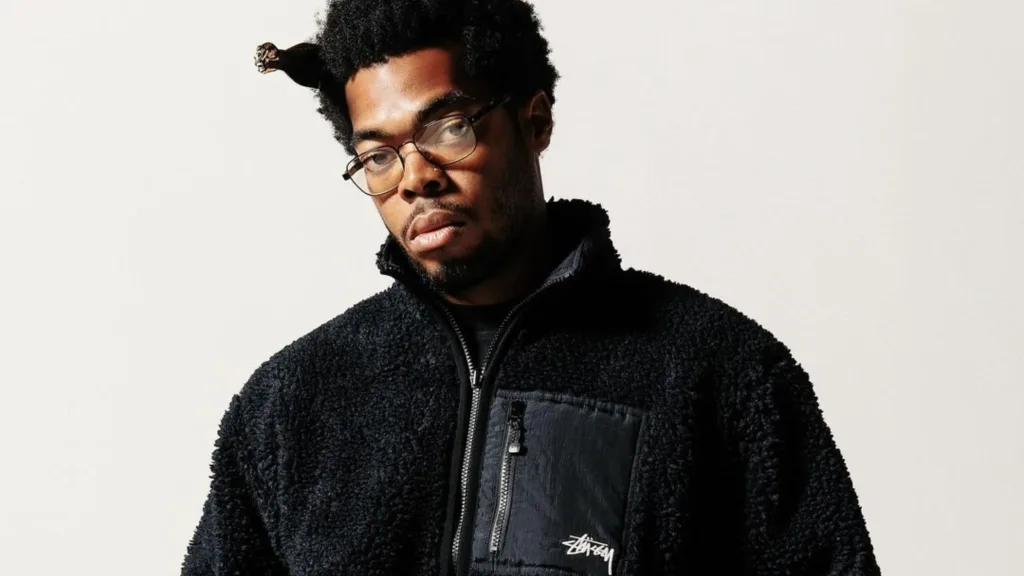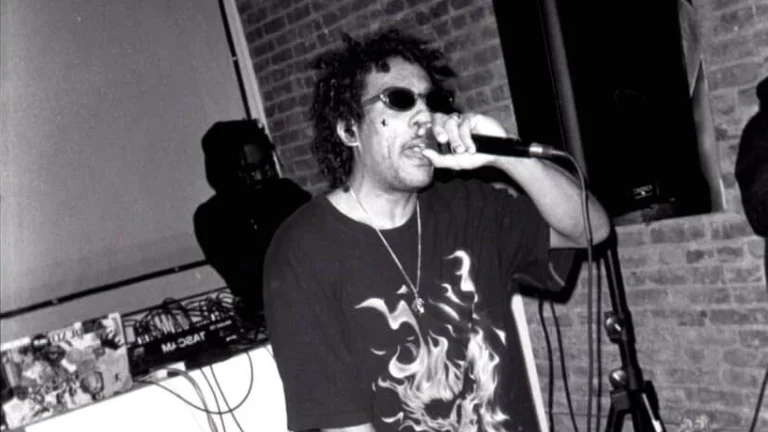Oakland MC Demahjiae has made a point of being honest on the mic since he first entered the scene in 2020. His debut album And, Such Is Life. is one of the more tender rap releases of recent memory, as he discusses personal life and emotional difficulties. Jesus Take the Wheel, Demahjiae’s newest project, continues pursuing this unique sound of floaty, sparse samples, distorted vocals, and soul-adjacent instrumentation behind a pensive lyrical approach.
Self-producing the three tracks, Demahjiae doesn’t need to prove his talent. Instead, he lets you hear it. The first track, “AKIMBO,” wastes no time capturing the listener’s ear with layered vocals, a jabbing beat, and pure sonic confidence. Throughout the rest of the song, the production shifts wildly and often. It begins with a bouncy beat, leaning into a stop-start flow and a gorgeous vocal sample, but within a mere twenty seconds, Demahjiae’s flow and beat change entirely. For a moment, the production consists of keyboard tapping and classic boom-bap drums—and then, audaciously, Demahjiae hops straight back to his initial sound.
It is in the small pockets of creativity—like that brief beat switch—found throughout Jesus Take the Wheel, which sees Demahjiae reveal his musical hand. The talented producer portrays much more than many artists could about themselves. He talks about his past, his relationships, his friends, and his background across three short tracks, allowing his intelligent lyrics (“Still gotta make amends, ok, the soul ain’t gonna break the man / Money and power don’t make the man” from “Rap saved my life!” says it all) to float atop a complex, chameleonic, luscious soundscape.
His versatility is not only seen in his differing flows or shifts in production, though. Demahjiae also moves between rapping and soulful singing, as heard in ad-libs on “Rap saved my life!” and towards the end of “AKIMBO.” The way he glides between different genres and sub-genres is captivating, keeping the listener on their toes and boldly broadcasting his flexible artistry as a truly exciting musician. A quick comparison between the melancholy, mellow sound of “projection (r)” and the triumphant, loving lyricism on “AKIMBO” highlights these adaptable talents.
Lyrically, Demahjiae is astute and refreshing. He is wonderfully introspective on the mic, discussing his prioritization of his long-term friends over “snakes” on “AKIMBO” and writing a delicate love letter to hip-hop on “Rap saved my life!” Similarly to his contemporaries, such as Navy Blue or even a more mainstream rapper like Saba, Demahjiae is willing to discuss his personal life in a raw way with those listening as he talks about those close to him with abundant love. The openness of lines about Demahjiae’s difficulties growing up invites the listener to share an intimate space with him, and the rapper’s sense of hope is made more effective because of this. His emotionally complex lyrics, like “I watch the ashes rise and see a friend / … / I’m tired of being the only one dumb enough to forgive” on “projection (r),” capture relatable yet conflicting emotions in a way that is both reassuring and heartfelt. Demahjiae’s words are delicate while still portraying the toughness of what he has survived.
Though Jesus Take the Wheel’s three tracks all fit into a brief five-minute window, Demahjiae leaves an impression that will last far longer. His musical style is impressive and open-hearted, rich and genuinely moving because of his willingness to delve into such personal territory lyrically alongside the familiar yet slightly warped production sounds. Demahjiae’s five minutes are enduring as they discuss truths hitting close to home for many but held up by glimmers of the hope spread across the project. There’s a delightful sense of ambition in the production, consistent changes in flow, and a familiar, homely feel to the lyrics, which—evidently—come straight from the heart.





